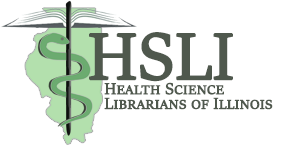Registration is now open for the 11th Annual Connecticut Information Literacy Conference, which will be held virtually on Friday, June 10. The Conference will be free for all to attend.
The theme of this year’s conference is Teaching for Change: Reframing Information Literacy through Antiracism. Institutions of higher education throughout the country are reinforming their educational policies, processes and practices with regard to issues of diversity, equity, and inclusion. “Critical information literacy refutes the neutrality of traditional information literacy and asks library educators and students to engage with the social and political dimensions of information, including production, dissemination, and reception” (Eamon Tewell 2016) This means that all information contains the inherent biases and limited world view of the author. How do we transform our information literacy practices to build upon our institutions’ DEI plan?
Our Keynote
Fobazi Ettarh’s research is concerned with the relationships and tensions between the espoused values of librarianship and the realities present in the experiences of marginalized librarians and library users. In 2018, she coined the term and defined the concept of “vocational awe,” which describe, “the set of ideas, values, and assumptions librarians have about themselves and the profession that result in beliefs that libraries as institutions are inherently good and sacred, and therefore beyond critique.” Although written before the start of the COVID-19 pandemic, Ettarh’s words have resonated with many library workers throughout the nation in the current moment, as we strive to serve our patrons and our profession as best we can amidst the competing demands of home, work, and health.
Her remarks on equity and inclusion in libraries are just as timely and important. In a 2019 interview with Cathy Hannabach, she spoke of the resistance that marginalized library workers can face when advocating for better working conditions and talked about what a changing world might offer in the way of alliances and social progress. When describing what a better world would look like to her, Fobazi Ettarh said, in part, “a place where change is embraced, where people work as a collective rather than working in opposition to each other -and to one’s own interest – …a place where conflict isn’t seen as a four-letter word but as a fulcrum to a better time, a better organization, a healthier world and place.”
Registration and additional information about the Conference are available here.
